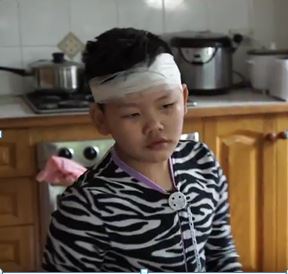Refugees and disability services
Disabled refugees arriving in Australia face service gaps and are missing out on vital equipment, modified housing and dedicated disability support, a forum in Melbourne has heard.
The HSS Settlement Grants Forum 2015 held this week at Melbourne’s Multicultural Hub was told that there were significant issues and barriers to disabled humanitarian entrants to Australia who needed specialist services.
The event, titled ‘Better access to services for humanitarian clients with a disability’, heard that these issues included: a lack of access to specialist equipment such as wheel chairs; a systemic breakdown of links between settlement and disability services; transport difficulties which could make accessing services and getting to appointments impossible; and, a lack of access to appropriately modified housing.
The forum heard refugees routinely waited a year to be provided with a wheelchair and that it could take a similar period of time to secure an appointment with an occupational therapist.
The event’s moderator Aaron Van Ree said disability among refugees would become a greater issue for the humanitarian sector with the arrival of people who have fled the Syrian conflict.
“There is a rising prevalence of disability among humanitarian arrivals to Australia and a need to do something about it,” said Mr Van Ree, a co-ordinator with forum host and settlement agency AMES Australia.
AMES Australia General Manager Settlement and Asylum Seeker Programs, Ramesh Kumar, said disability was a becoming an important issue for settlement service providers but the resources were not in place to deliver adequate service levels.
“Settlement service providers are expected to do too much by the mainstream providers and the current system is not sustainable for humanitarian arrivals,” Mr Kumar said.
“People are falling through the service gaps so we need to find some solutions,” he said.
“We want the best outcomes for our clients including those with a disability. We are committed as a sector and as an organisation at AMES Australia to the principles set out in the UN Charter of Human Rights – especially those around respect, dignity, access and inclusion.
“We need to do our best for people who are expecting us to assist them,” Mr Kumar told the forum.
The forum was aimed at identifying issues and finding solutions for disabled refugees in need of specialised health services, equipment, housing and dedicated disability support services.
It was attended by about 80 key people from settlement and disability services from across Victoria.
Department of Social Services Branch Manager, Settlement Support, Leo Kennedy, told the forum that it was likely Australia’s intake of refugees from the Syrian conflict would rise above the 12,000 mark already announced.
“A major priority of the Australian Government in terms of settlement will be to respond to the Syria/Iraq crisis,” Mr Kennedy said.
“We expect many of the Syrians who come will have experienced trauma in their home country as a result of the conflict and will need referrals to Complex Case Services.
“Navigating Australia’s health system can be difficult and even more difficult for people who are newly arrived.” Mr Kennedy said.
Laurie Nowell
AMES Australia Senior Journalist













